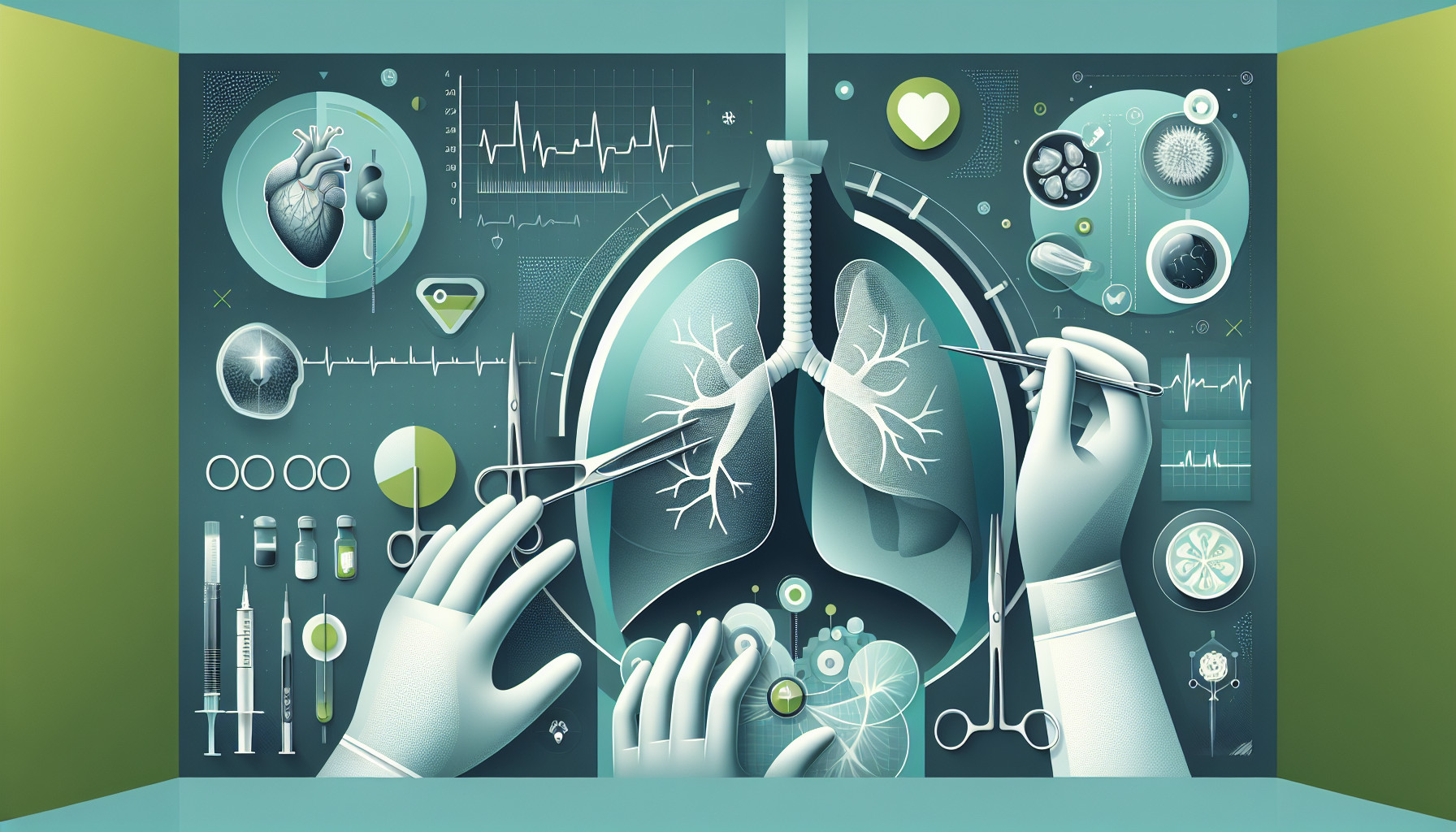Our Summary
This research paper discusses lung transplantation, which is often the only treatment for patients with severe, irreversible lung disease. The paper highlights advancements in the selection of donors and recipients, organ allocation, surgical techniques, and immune system suppression methods, which have all improved survival rates after a lung transplant. However, the paper notes that lung transplant recipients still frequently experience complications, often requiring intensive care. The paper also discusses the increasing use of extracorporeal life support, an external device that helps the heart and lungs function, as a way to keep critically ill patients alive until they can receive a lung transplant. The focus of the review is on the intensive care aspects of lung transplantation, both before and after surgery.
FAQs
- What is the role of critical care in lung transplantation both before and after surgery?
- How has the use of extracorporeal life support changed the process of lung transplantation?
- What improvements have been made in the donor and recipient selection, organ allocation, surgical techniques, and immunosuppression in lung transplantation?
Doctor’s Tip
One helpful tip a doctor might give a patient about lung transplant is to closely follow the post-transplant care plan provided by the medical team. This may include taking medications as prescribed, attending follow-up appointments, participating in pulmonary rehabilitation, and avoiding exposure to environmental toxins that can harm the new lungs. By following these guidelines, patients can help ensure the success of their lung transplant and improve their long-term outcomes.
Suitable For
Patients who are typically recommended for lung transplantation include those with severe irreversible lung diseases such as:
- Chronic obstructive pulmonary disease (COPD)
- Idiopathic pulmonary fibrosis
- Cystic fibrosis
- Pulmonary hypertension
- Alpha-1 antitrypsin deficiency
- Bronchiectasis
- Sarcoidosis
- Lymphangioleiomyomatosis
Patients who have failed to respond to other treatments, such as medication, oxygen therapy, and pulmonary rehabilitation, may be considered for lung transplantation. Additionally, patients who have a limited life expectancy without a transplant and who meet specific criteria for lung transplantation, including age, overall health, and absence of significant comorbidities, may be recommended for the procedure. It is important to note that the decision to pursue lung transplantation is made on a case-by-case basis by a multidisciplinary team of healthcare professionals.
Timeline
Before lung transplant:
- Initial evaluation and assessment by a transplant team to determine if the patient is a suitable candidate for lung transplantation.
- Placement on the transplant waiting list and waiting for a suitable donor match.
- Pre-transplant workup including medical tests, imaging studies, and consultations with various specialists.
- Education and counseling on the transplant process, risks, and post-transplant care.
- Hospitalization for the transplant surgery, which may include pre-operative procedures and tests.
After lung transplant:
- Immediate post-operative care in the intensive care unit (ICU) to monitor for complications and ensure initial graft function.
- Immunosuppressive medications to prevent organ rejection.
- Monitoring for signs of infection, rejection, and other complications.
- Pulmonary rehabilitation and physical therapy to improve lung function and overall recovery.
- Long-term follow-up care including regular medical check-ups, imaging studies, and medication management.
- Potential complications such as rejection, infection, primary graft dysfunction, and chronic lung allograft dysfunction may require hospitalization and intensive care management.
What to Ask Your Doctor
- What is the success rate of lung transplants at your facility?
- What are the potential risks and complications associated with lung transplantation?
- How long is the recovery process after a lung transplant?
- What medications will I need to take post-transplant and what are the potential side effects?
- How often will I need to follow up with you after the transplant?
- What lifestyle changes will I need to make after the transplant?
- How will the transplant affect my ability to exercise and engage in physical activity?
- How will the transplant impact my immune system and susceptibility to infections?
- What are the signs of rejection that I should watch out for and what should I do if I suspect rejection?
- Are there any support groups or resources available for lung transplant patients at your facility?
Reference
Authors: Natalini JG, Clausen ES. Journal: Clin Chest Med. 2023 Mar;44(1):105-119. doi: 10.1016/j.ccm.2022.10.010. PMID: 36774158
